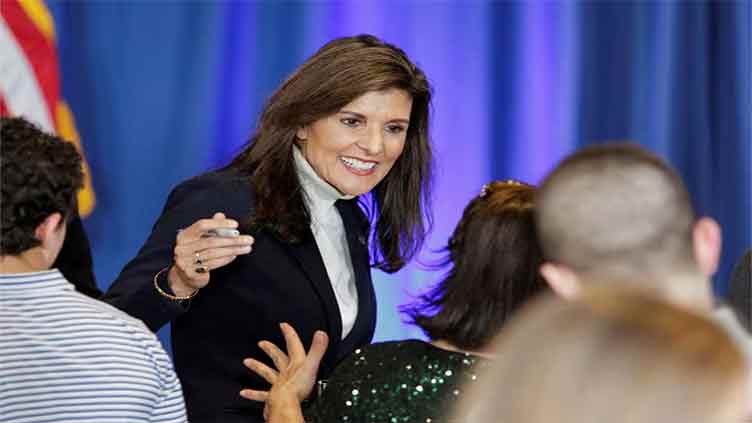Nikki Haley: How her failed presidential campaign evolved from dutiful to defiant

World
Nikki Haley: How her failed presidential campaign evolved from dutiful to defiant
CHARLESTON, South Carolina (Reuters) - For much of her 2024 presidential campaign, Nikki Haley spoke fondly of serving under former President Donald Trump for two years as US ambassador to the United Nations.
Trump, she often told voters, was "the right president at the right time."
But when Haley suddenly found herself in a head-to-head battle with the Republican frontrunner, who hurled a bevy of insults her way, she unleashed a torrent of attacks in return. The 77-year-old Trump, she now said, was too old and too chaotic to send back to the White House for a second four-year term.
Haley's evolution from a Trump acolyte to arch rival in the late days of the Republican nominating race left her as the standard-bearer for the party's dwindling anti-Trump faction.
Her defiant stand against her former boss won her the support of some independents and moderate Republican voters, along with the backing of donors who poured tens of millions of dollars into her campaign in its final months.
Haley, 52, never seriously challenged Trump in opinion polls. On Wednesday, she ended her campaign. She said it was likely Trump - who repeatedly belittled her candidacy - would be the Republican nominee but did not endorse him.
By the time she decided to drop out, she had been abandoned by some former allies and left with no clear political future in a party dominated by the man who now will lead its presidential ticket.
Even so, Haley's ascent was notable. Stuck in single digits in polls for much of the race and overshadowed by more prominent names in a crowded field, Haley, the only woman in the Republican contest, nonetheless outlasted all other candidates and was Trump's last remaining rival. Polls on hypothetical general election matchups showed her beating Democratic President Joe Biden.
"She pivoted from nuance to direct assault," Chip Felkel, a veteran Republican strategist from South Carolina, said in February.
"I wish she had done it sooner," he added.
Haley's political rise began in earnest in 2010, when she was elected governor of South Carolina, becoming the first woman to hold that post in the Southern state and the second person of Indian descent to serve as a U.S. governor. She served from 2011 to 2017.
When Trump ran for president in 2016, Haley backed two of his rivals before saying she would support Trump if he became the Republican nominee, even though she was "not a fan" of his.
She worked for Trump for two relatively drama-free years at the U.N. and played a key role in withdrawing from the Iran nuclear deal, which was signed under Democratic President Barack Obama and had been unpopular among conservatives.
She initially said she would not run for president in 2024 if Trump made a bid. When she changed her mind and decided to launch her campaign in February 2023, she phoned Trump as a courtesy and he later recounted giving her his blessing.
Haley stuck to a policy-focused message on the campaign trail and tried to distinguish herself as the most capable contender on foreign policy. While almost all the Republican candidates staked out a tough position on China, Haley's unabashed support for Ukraine represented a contrast with Trump, who said the conflict was not central to U.S. national security.
It was not until a series of combative debate performances starting in late August that she gained any real traction.
Several major donors, including hedge fund billionaire Ken Griffin and Wall Street investor Stanley Druckenmiller, started looking her way, particularly as the campaign of Florida Governor Ron DeSantis, once seen as Republicans' best shot to move on from Trump, floundered.
In November, AFP Action, a political advocacy network backed by billionaire Charles Koch, endorsed Haley. The group deployed an army of thousands of on-the-ground door knockers and organizers and blanketed the airwaves on her behalf.
By December, Haley had surpassed DeSantis in most national polls and replaced the former governor in the No. 2 spot, though Trump's massive lead was never threatened.
Haley had complimented the former president as much as she criticized him during the race, so much so that she often was asked if she was angling to be his running mate - a question she called "highly offensive."


